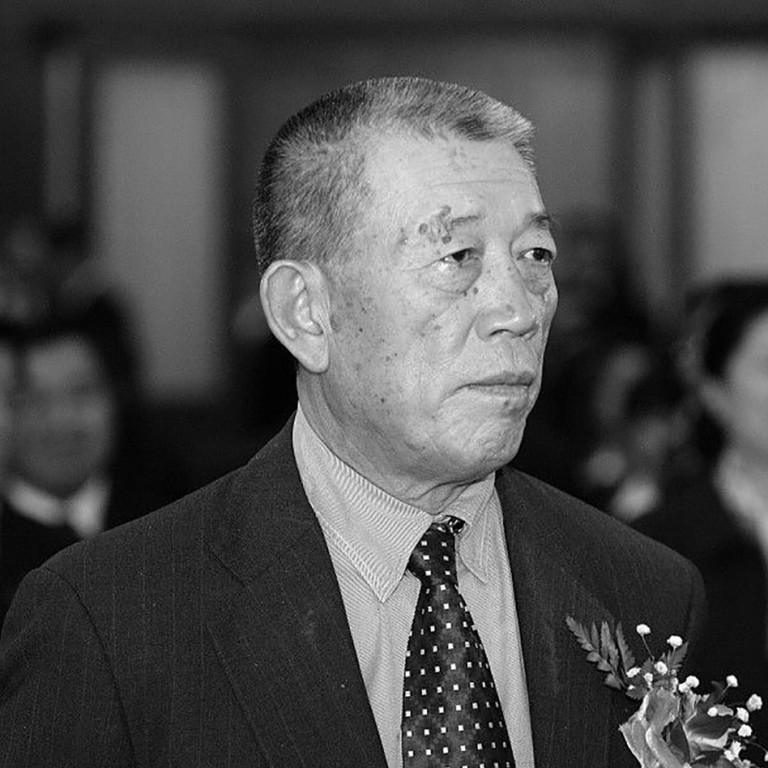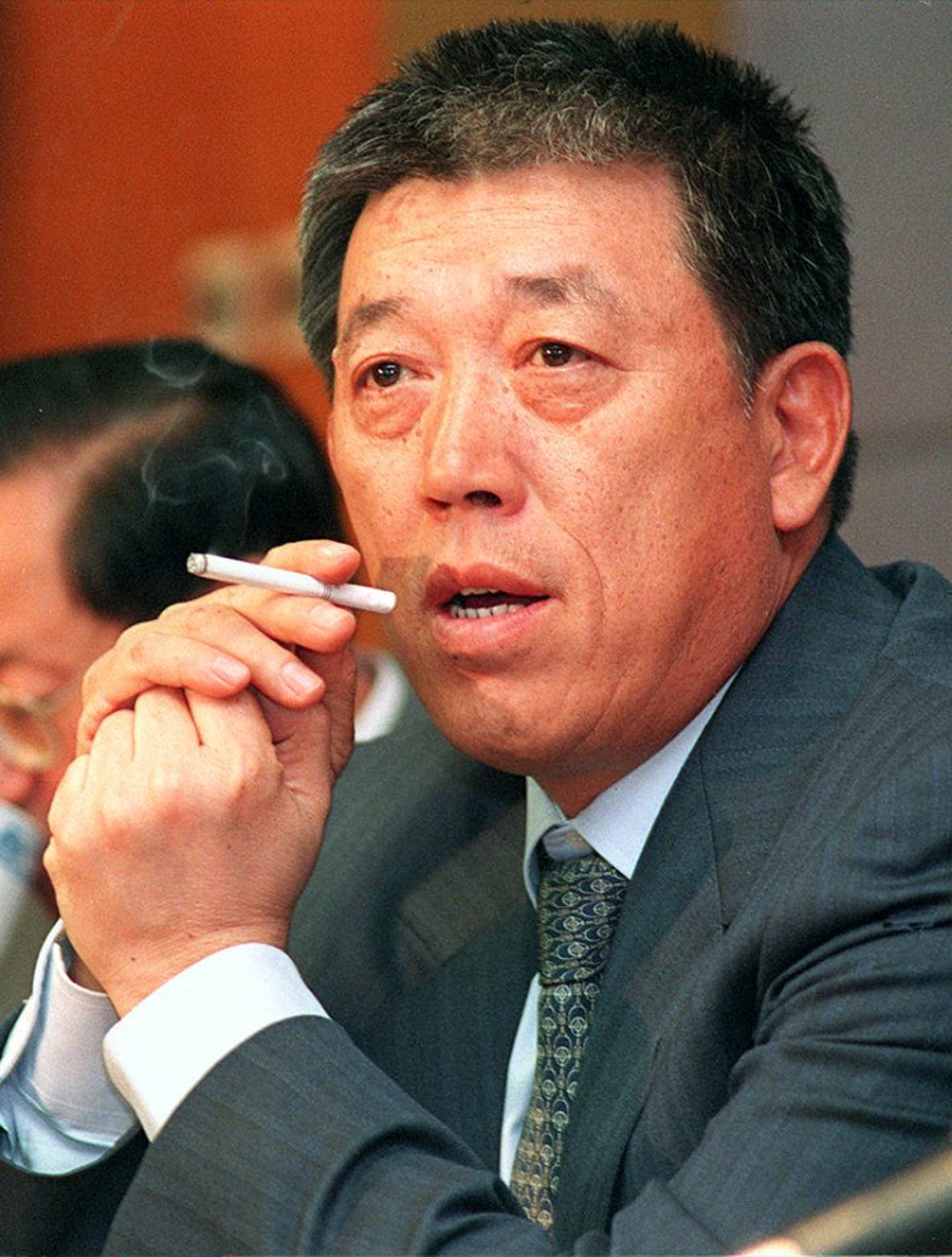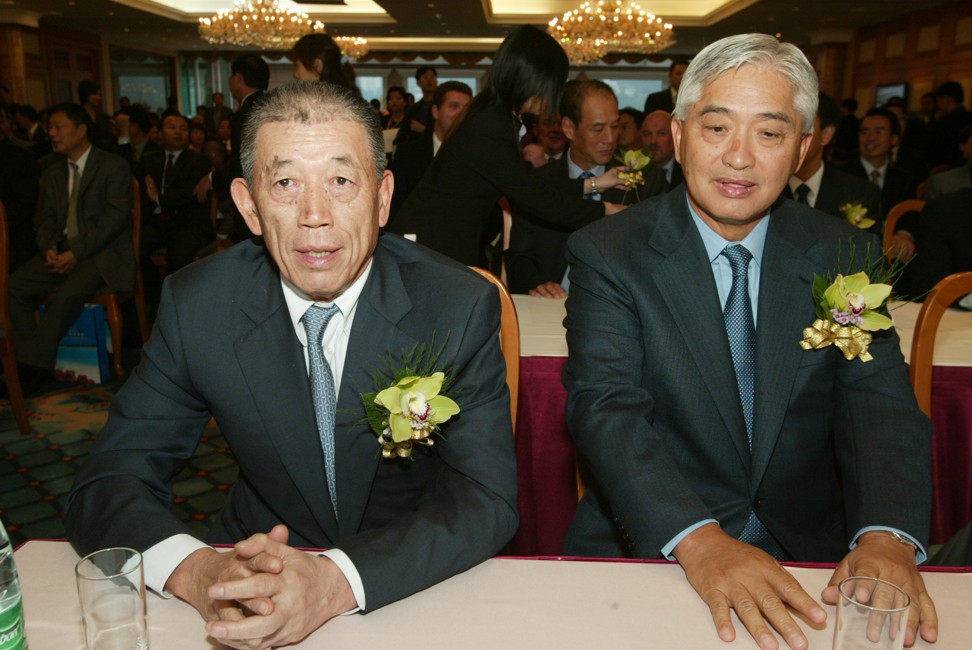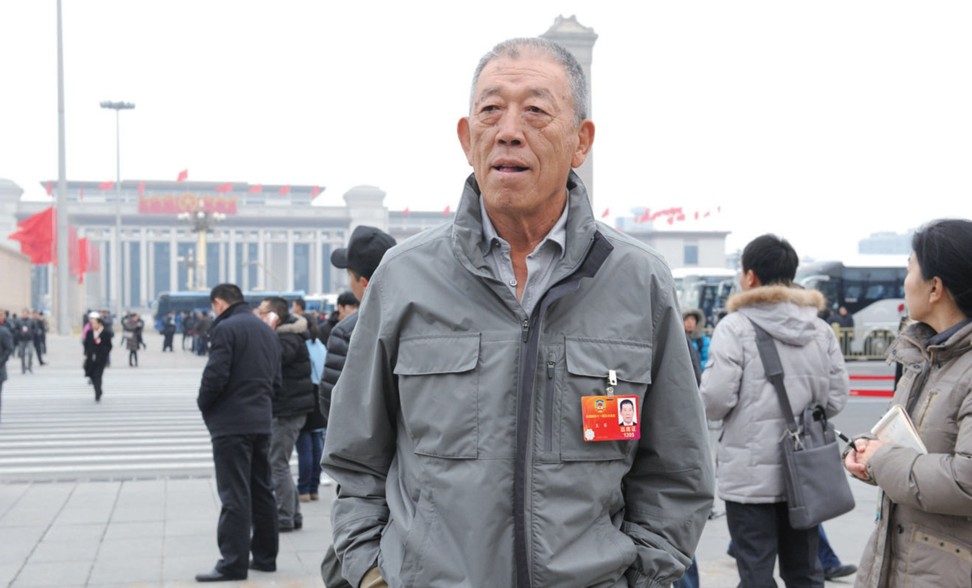
Wang Jun, the ‘princeling’ who chaired one of the world’s biggest asset-owning conglomerates at Citic Group, dies at the age of 78
- Wang Jun, former chairman of Citic Group and the Poly Group, has died at the age of 78, according to Chinese state media
- Wang was the son of Wang Zhen, one of the Eight Elders of the Chinese Communist Party and a founding elder of the modern People’s Republic
Wang Jun, the son of one of communist China’s founding elders and a former chairman of the country’s largest state conglomerate, died on Monday, aged 78.
Wang died at 10.56pm on June 10, according to a report by state-owned news outlet Thepaper.cn in Shanghai, citing unidentified sources and without elaborating. Xinhua News Agency, the government’s mouthpiece, has yet to report the news.
Wang, who carried the rank of a full government minister, was chairman of China International Trust and Investment Corporation, better known as Citic, between 1995 and 2006.
With 375 billion yuan (US$54 billion) in 2013 revenue, the Beijing-based state investment vehicle was China’s largest company and one of the biggest owners of foreign assets in the world, operating a range of businesses from banking and finance to real estate and heavy industries. The company has yet to issue a statement.

The company was founded in 1979 as a vehicle for the Chinese government to raise capital when it embarked on capitalist market reforms in the late 1970s. Citic’s founder Rong Yiren – dubbed the Red Capitalist – was China’s vice-president from 1993 until 1998.
Wang was born in Hunan province in 1941, while his father Wang Zhen was a brigade commander in one of the most celebrated commune farms operated by the then communist guerillas. After the founding of the People’s Republic in 1949, the senior Wang was hailed as one of the Eight Elders of the Communist Party, and rose to the rank of the nation’s vice-president, between 1988 and 1993.

The son of the late vice-president worked as a shipyard engineer at Shanghai’s Jiangnan Shipyard in 1996 after graduating from Harbin Military Engineering Institute. He served for two years with the People’s Liberation Army’s naval forces between 1977 and 1978, before joining the nascent Citic as a department chief.
Wang was promoted to Citic’s president in 1993 and was elevated into the top position of the conglomerate three years later as chairman of the board. At that time before China’s membership in the World Trade Organisation and before hundreds of Chinese companies raised capital through global stock market listings, Citic was the largest single Chinese conglomerate. It answered directly to China’s State Council, as the government cabinet was called.
During his lifetime, Wang also chaired the board of Poly Group, a state conglomerate with businesses that stretch from antiquities to real estate and military supplies and armaments.

Citic Pacific, the international arm of the group, was at the centre of a financial scandal in 2008 when it had to write off HK$14.7 billion (US$1.88 billion) in losses due to wrong-way bets in the currency market. The loss forced Larry Yung Chi-kin – the son of Citic’s founder and then one of China’s wealthiest men – to step down in 2009 as the Hong Kong-listed company’s executive chairman. Yung is also known in mainland China as Rong Zhijian.
By the time the scandal broke, Wang had already reached his retirement age of 65, and had stepped down to make way for Kong Dan to take over the helm of the group.
A chain smoker, Wang loved golf, and was the honorary vice-chairman of the China Golf Association, a curious title in a country where the elitist sport coexists uneasily with the proletarian ethos of the ruling Communist Party.
Under Chinese President Xi Jinping’s crackdown on corruption and rid the Communist Party of ostentatious consumption, golfing was frowned upon, and club memberships for high-ranking government officials became an automatic flag for investigation.
Wang was a princeling, as the children of China’s Communist Party leaders are known, and he was a senior among equals in the tight-knit community. Other prominent princelings include Bo Xilai, the former Chongqing commissar now serving a life term in jail for corruption, who was the son of Bo Yibo, one of the Eight Elders; and China’s president Xi, the son of the late Xi Zhongxun, who was a vice-chairman of China’s legislature.
Wang is survived by his wife Ye Xiaoying, the youngest daughter of the late Marshal Ye Jianying, one of the country’s founding leaders. The couple has two sons Wang Jingchen and Wang Jingyang, and a daughter Wang Jingjing, according to Chinese media reports.

